Inaugural Class of Doctor of Nursing Practice Graduates from Andy and Barbara Gessner College of Nursing
Six Graduates Raise the Bar for Nursing Education and Help Fill Nursing Leadership Shortage
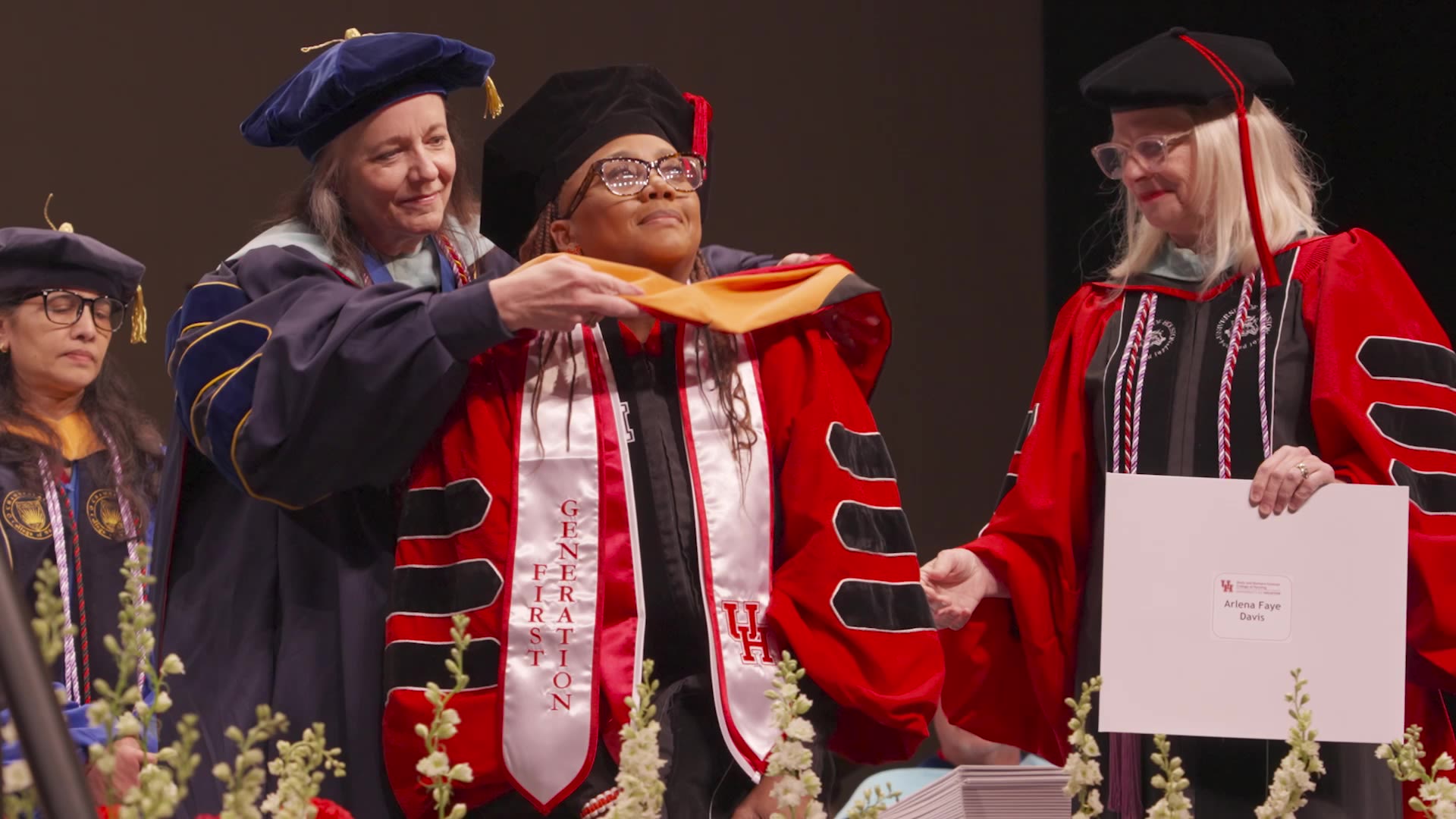
Three years after its inauguration, the Doctor of Nursing Practice (DNP) at the Andy and Barbara Gessner College of Nursing is graduating its first class. The DNP doctorate prepares family nurse practitioners and nurse executives to address the shortages of primary care providers, nursing educators and leaders in a complex health care environment. The program raises the bar for preparation necessary for advanced nursing practice from the master’s degree to the doctorate level.
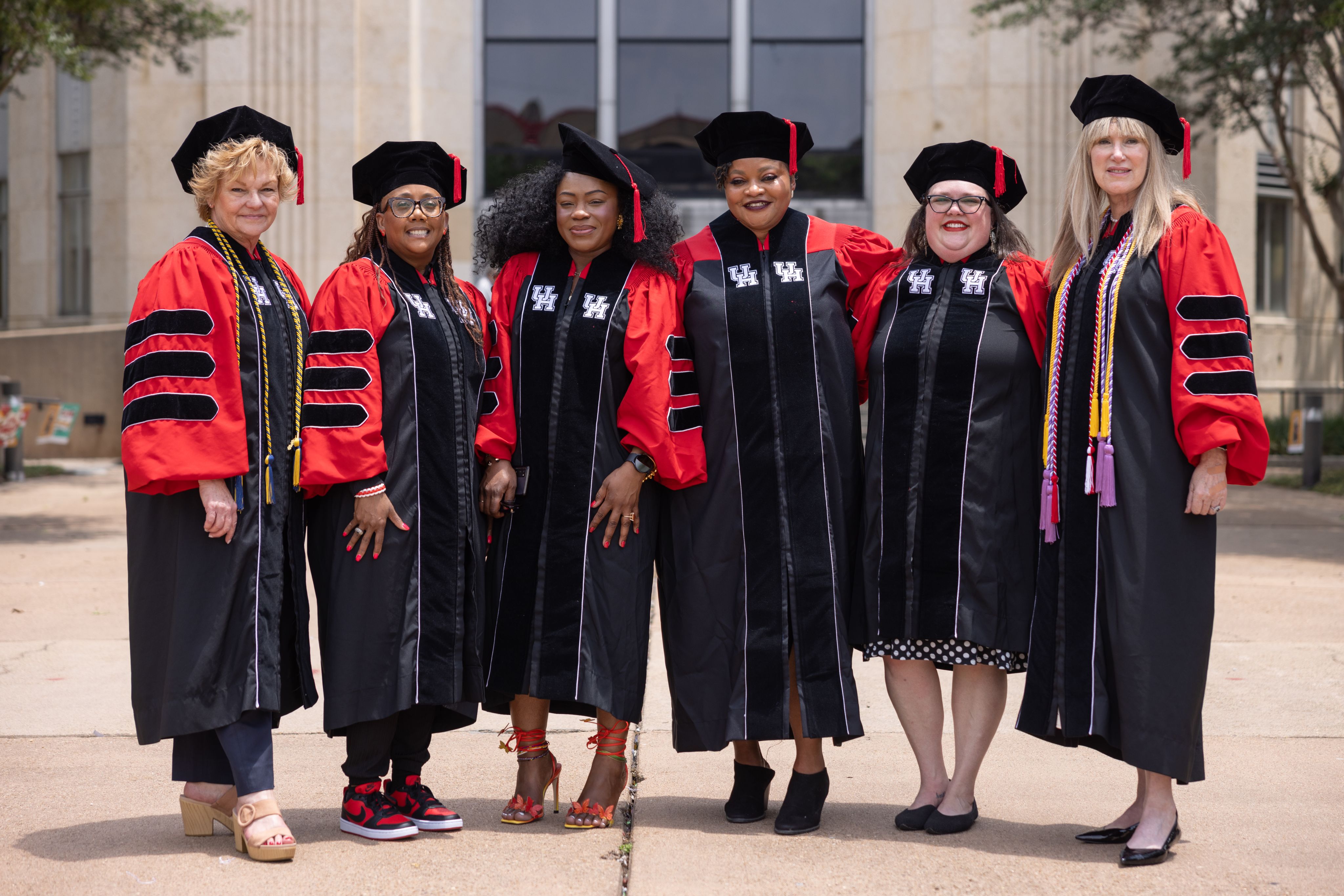
The first group of Doctor of Nursing Practice Graduates
The first group of Doctor of Nursing Practice Graduates
The six new advanced degree nursing professionals, who were all practicing nurses before entering the program, will continue their careers focused on providing leadership for evidence-based practice including translating research into practice, evaluating evidence, applying research in decision-making, and implementing viable clinical innovations to change practice.
“DNP-prepared nurses are our leaders who will improve healthcare by driving progress,” said Kathryn Tart, founding dean, professor and Humana Endowed Dean's Chair in Nursing. “The DNP degree supports the national movement toward making it the necessary degree for advanced nursing practice.”
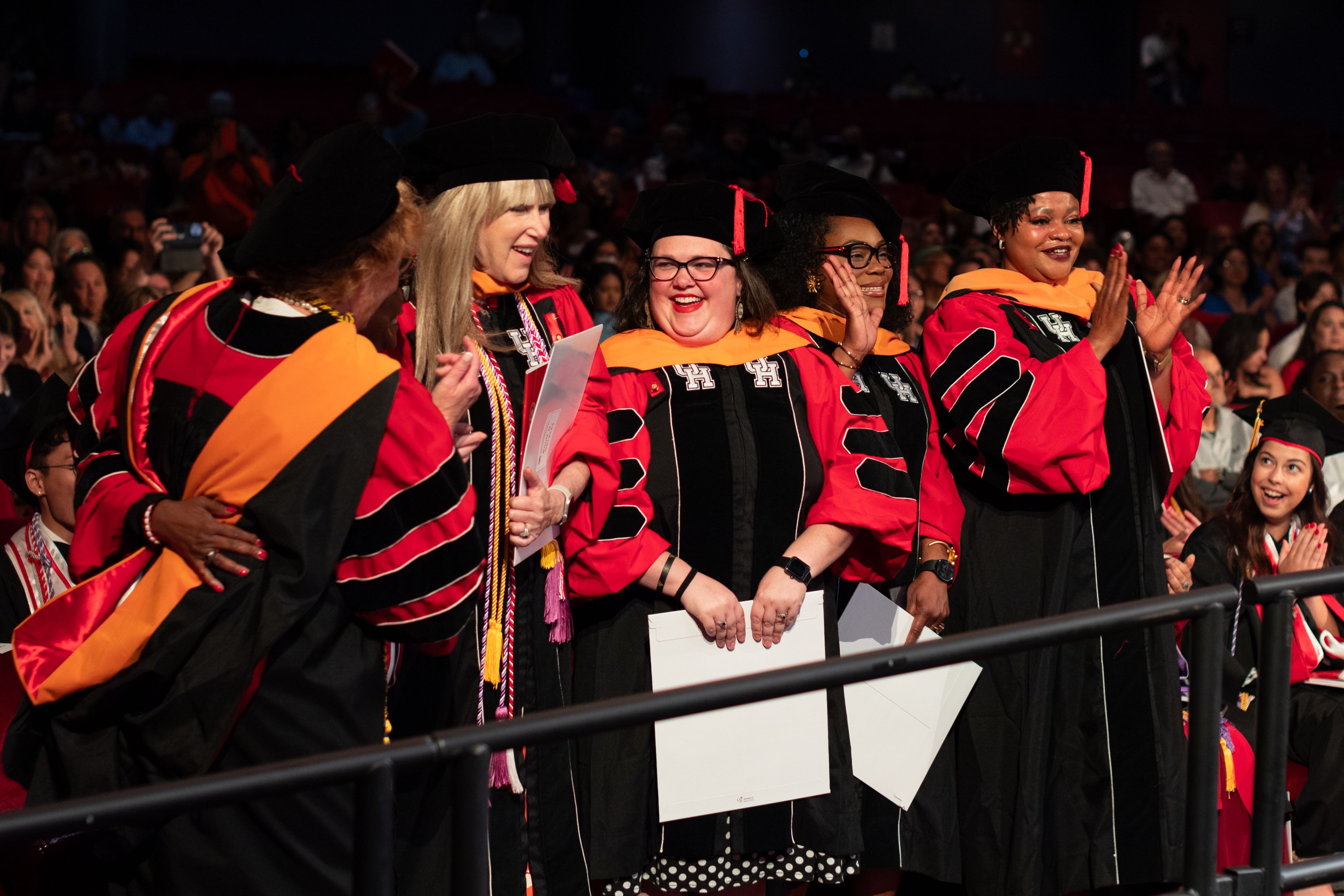
The group celebrates at graduation
The group celebrates at graduation
Of the six new graduates, Debra Bayliss and Arlena Davis are elite Albert Schweitzer Fellows, participating in a program that serves and empowers vulnerable people to build healthier communities and live healthier lives. Together Bayliss and Davis worked to bring easily accessible mental health care to Houston’s homeless population.
The Inaugural Class, In Their Own Words
Arlena Davis
Nursing Her Soul
“This journey started for me when I lost my son. I needed something to fulfill my loss and education has always been my happy place. With this degree I hope to help young nurses love and appreciate the trade. I hope to grow in my career in psychiatry and continue to help others. Caring always begins with a good heart, and the University of Houston loves its students, which drew me to the program. My ultimate goal is to return as an educator of new nurses and help them love nursing as I have since I became an LVN in 2003. This program is hard, but the reward is great. I am proud to be in the first class and will always be a Coog!”
- Arlena Davis
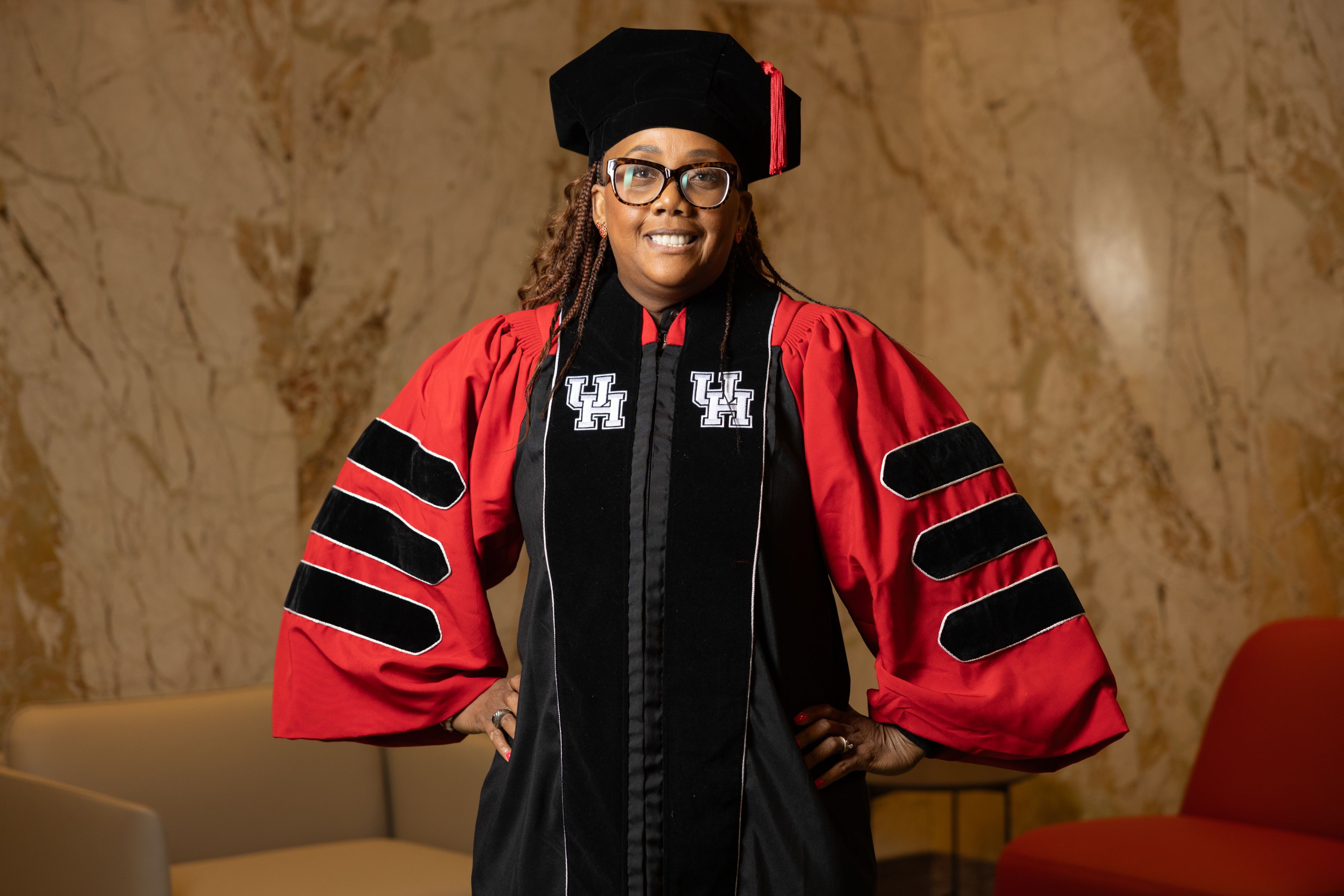

Ronit Gerecht
Generational Impact
“The DNP degree offers me a leadership opportunity and a chance to contribute to healthcare policy and research. It would elevate my position to the highest level of responsibilities and possibly create an impact within the nursing field. I am 66 years old, still working full time, and would like to continue contributing to my patients' care and the nursing profession for years to come. I pursued the degree for personal growth, my dedication to making a positive impact in the healthcare field, and to impress my wonderful four-year-old granddaughter.”
- Ronit Gerecht
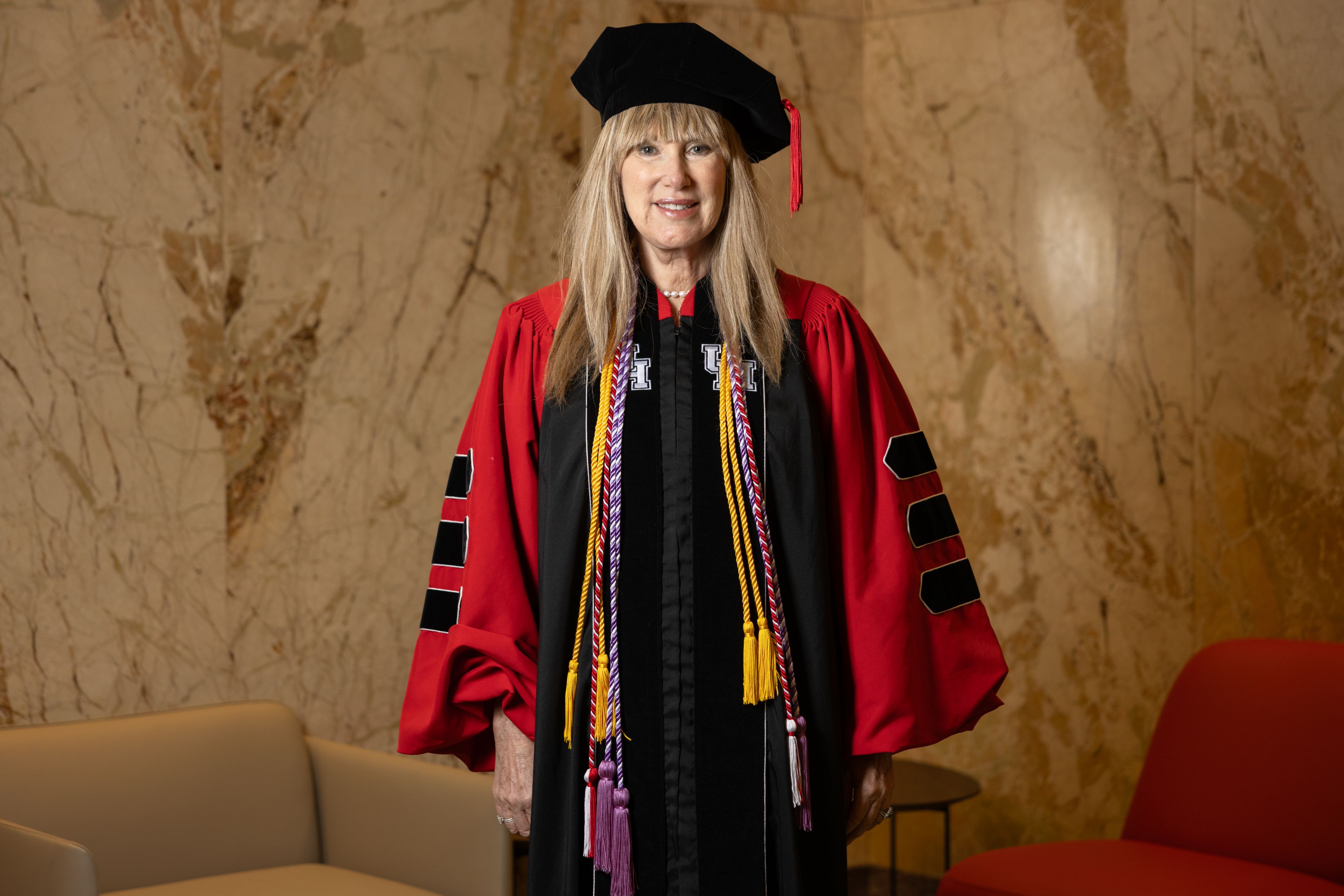

Courtney Harris
Inspired Cougar
“I received my master's from University of Houston and was urged by my professors and mentors to continue my education with my doctorate. At the time I was not ready, and I told them once the University of Houston has a DNP program I'll come back. And that is what I did. I wanted to better myself, increase my knowledge, learn how to become a leader for myself but also for my patients. This program has helped me do just that.”
- Courtney Harris
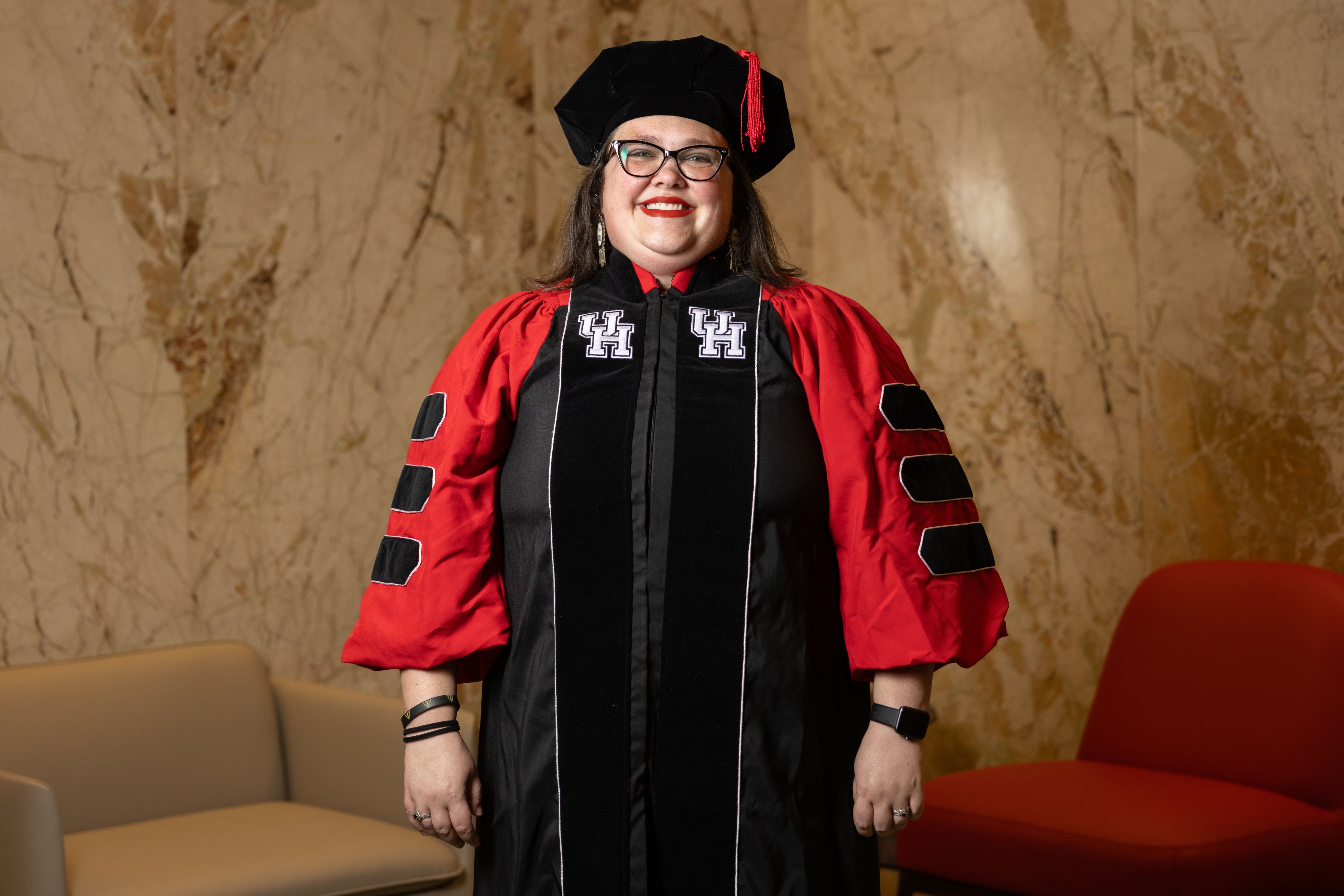

Debra Bayliss
Family Honor
“After a long struggle with alcohol and drugs, my brother’s death was the turning point for me. He had been homeless for a long time, 12 years, and the one thing he did hold onto was his cell phone. That drove my interest in the potential of telemedicine, to give direct access to the people who need it the most. He is also the reason I took on the Schweitzer Foundation fellowship. I am the first person in my immediate family to graduate from college and hope to teach future nurses. I waited for this DNP program because I had already experienced the excellent education I got in my master’s program. I just knew it was worth waiting for.”
- Debra Bayliss
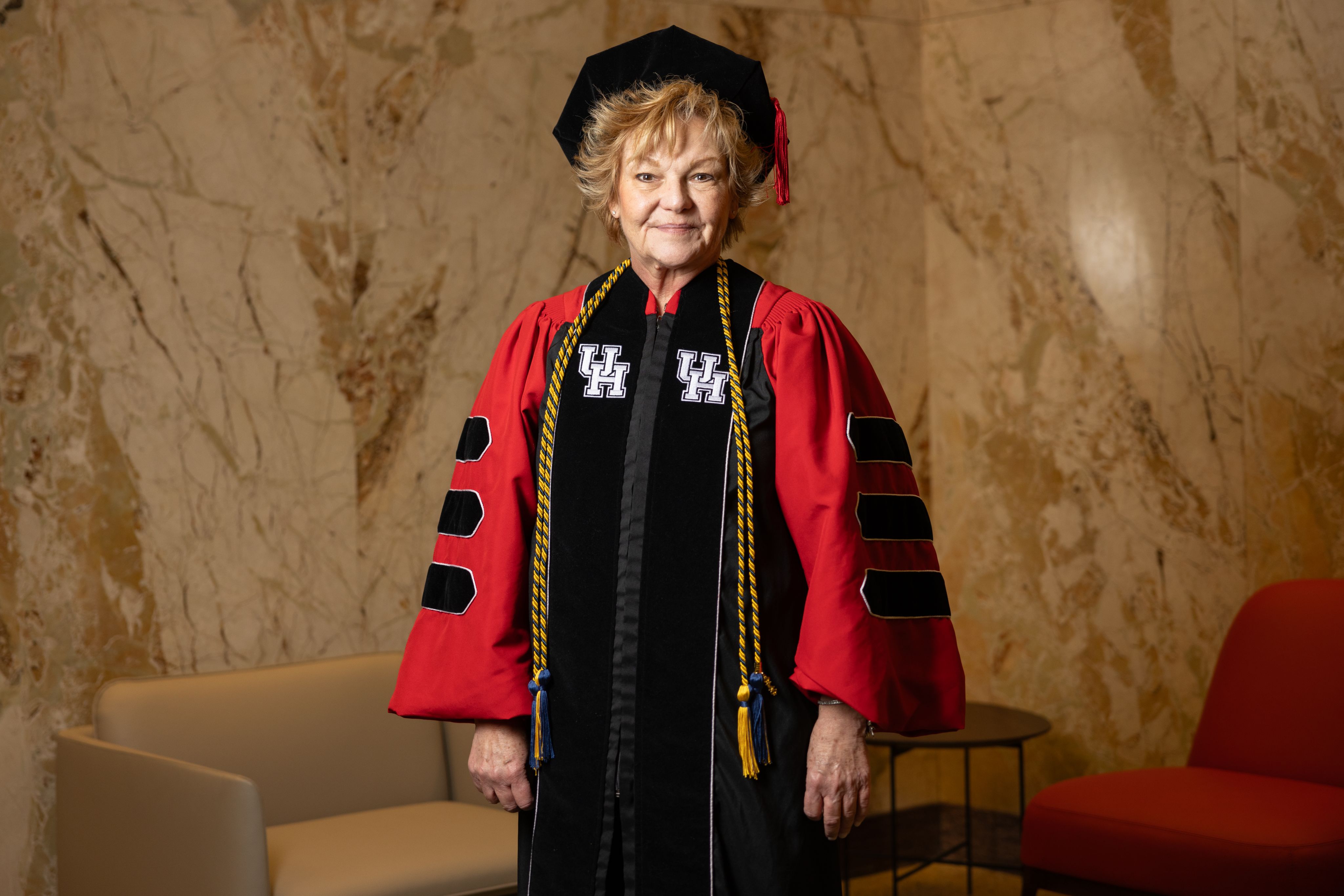

Edwige Koumfieg
Practical Progress
“Earning my DNP degree is a significant achievement that demonstrates my commitment to excellence in nursing. This can open new career opportunities, increase my earning potential, and allow me to make a more significant impact on patient care and healthcare outcomes. The knowledge and skills gained through my DNP coursework can help me become a more confident and effective healthcare provider and leader.”
- Edwige Koumfieg
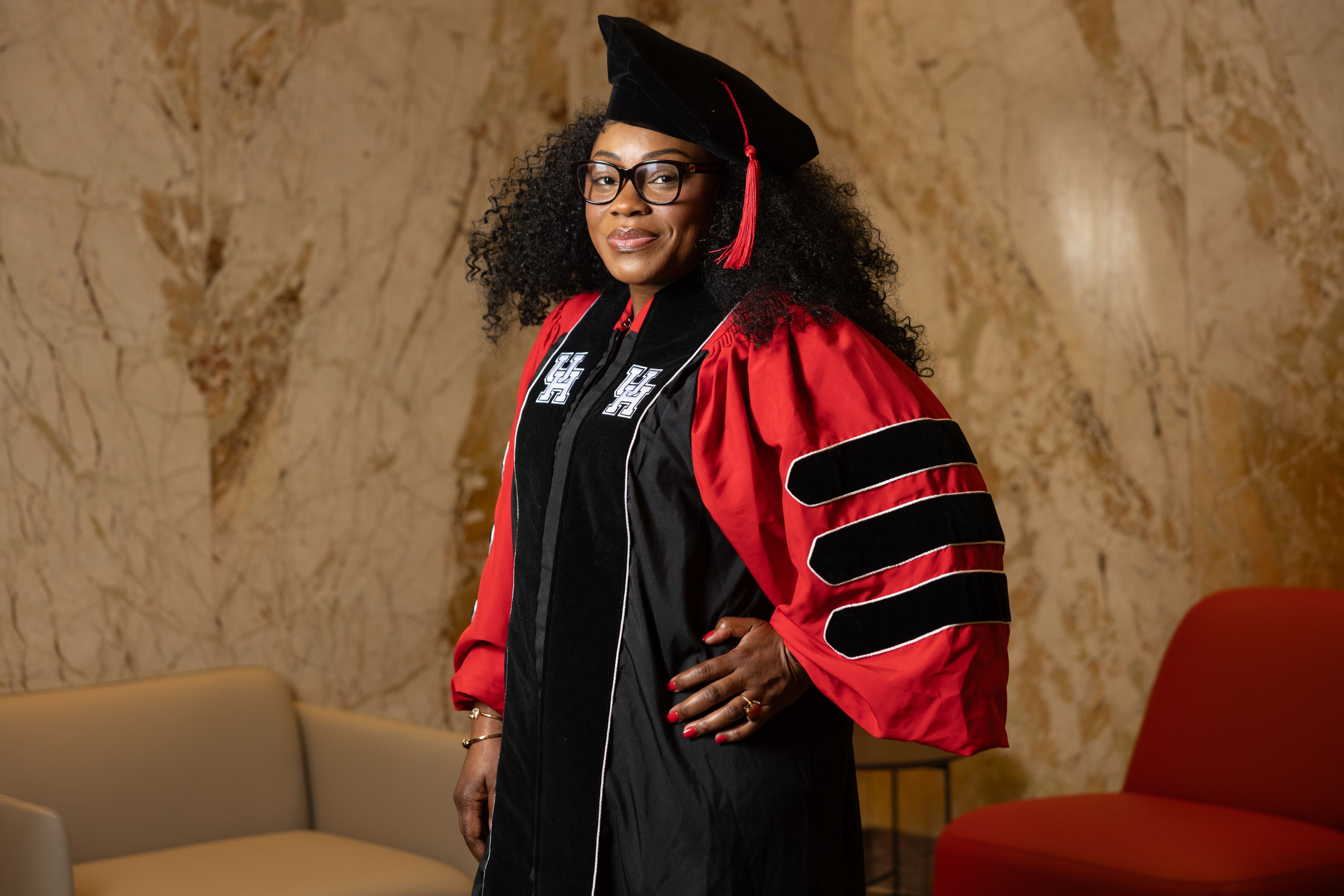

Fidelia Osifo-Selormey
Expanding Her View
“When I started the DNP program all I thought of was the patient, but now I have a 360-degree viewpoint that includes both the patient and the facility in terms of how I can help this patient with the limited resources I have. The DNP degree lifts you from the microcosm of the clinic setting to the macrocosm of state and federal policies so you can see how they affect your patient, and you can learn how to not only deploy resources in your reach but how to get others that are seemingly out of reach for patients. This is critical for my role as a provider in a correctional facility.”
- Fidelia Osifo-Selormey
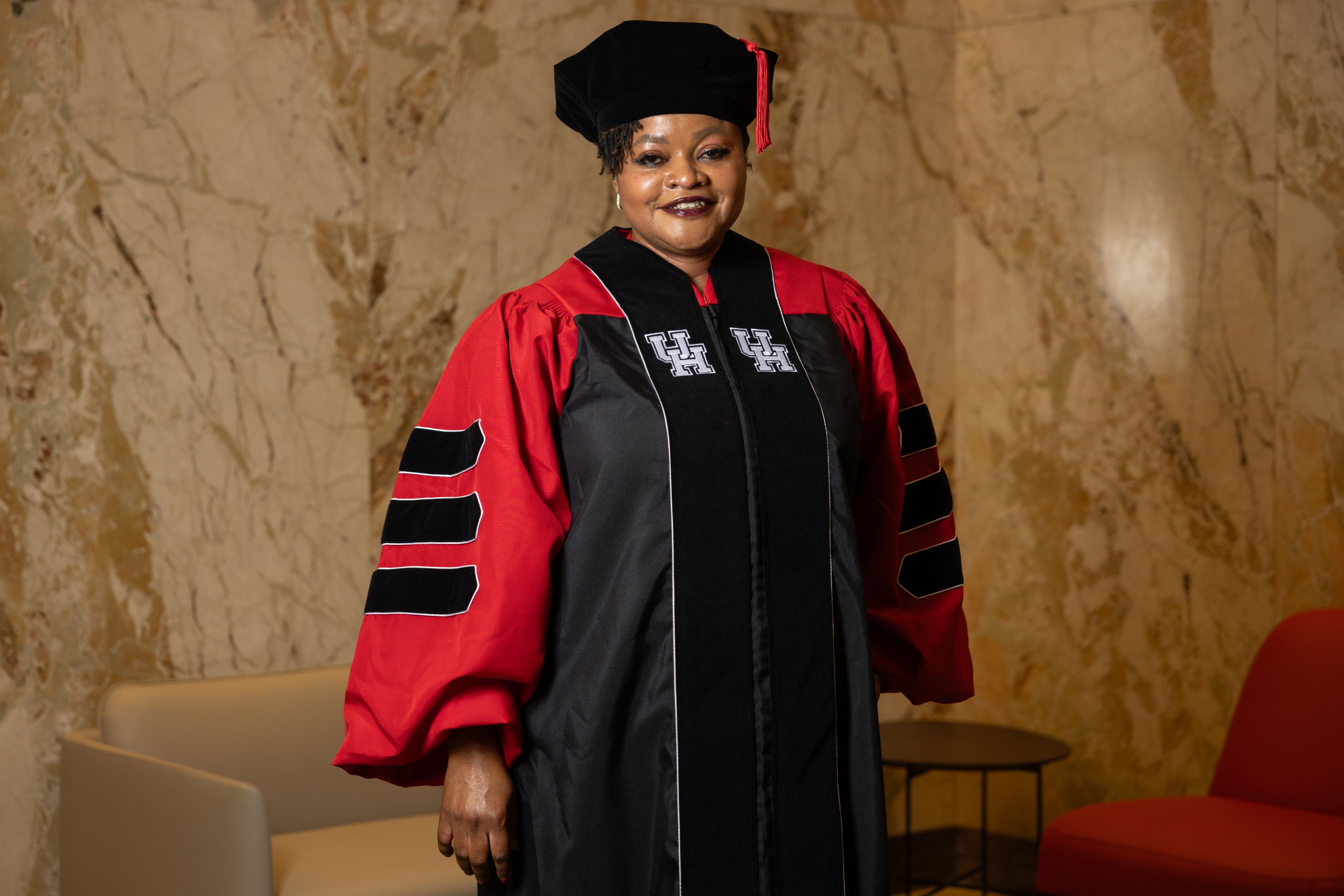

UH System Regent Durga D. Agrawal
Advocate and Pioneer of the DNP Degree
Key to the DNP degree being offered at the Gessner College of Nursing – and in the state of Texas - is secretary of the UH System Board of Regents, Durga D. Agrawal, president and CEO, Piping Technology & Products, Inc. In 2013 when he was a member of the Texas Higher Education Coordinating Board, Agrawal gave his full support immediately when the DNP program was presented. You could say he was in the right place at the right time.
And Agrawal has definitely been some places.
“As a young boy growing up in a small village in India of 600 people and no electricity, water supply, and without high school, we did not have medical doctors. My family relied on nurses and compounders who provided healthcare services until I reached high school,” said Agrawal of his longtime respect of the nursing profession. “In addition to bringing the DNP program to Texas, in February 2017 Sushila and I had the opportunity to meet with Prime Minister Modi in his office in Delhi. I recommended to him the DNP program in Texas and how it can help provide healthcare to masses in rural India.” The program was successfully implemented by the Nursing Council of India in January at two institutions, Krishna Institute of Medical Sciences and MGM Bombay College of Nursing.
In Texas today approximately 3,000 DNP professionals practice with approximately 5,000 more enrolled in one of many DNP programs across the state.
“Given the limited number of doctors and healthcare professionals, I believe that this program is having a significant impact in the healthcare industry to help alleviate these shortages in Texas,” said Agrawal. “Looking ahead, I envision this program continuing to grow and set a benchmark for Nursing education nationwide.”
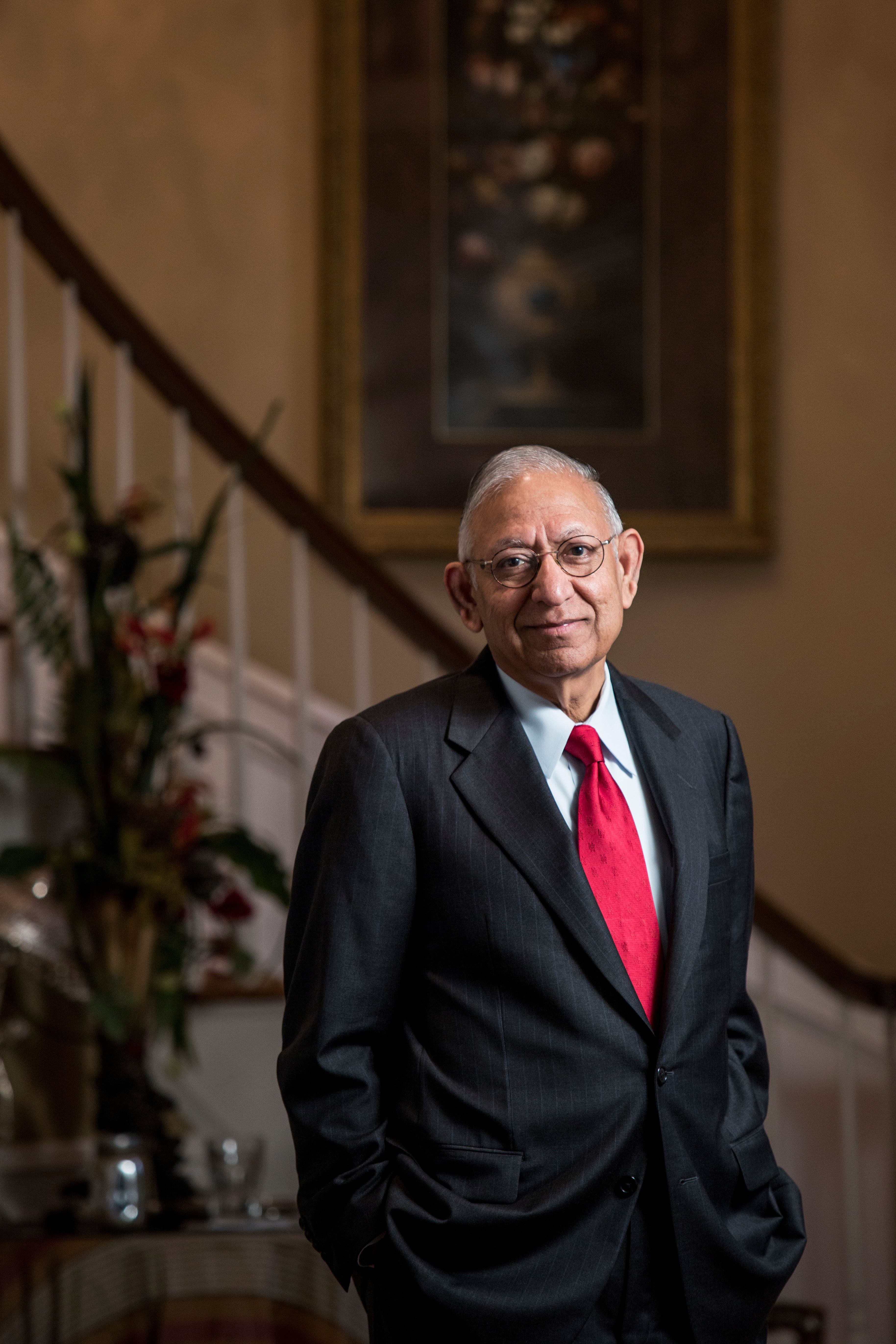
Durga D. Agrawal
Durga D. Agrawal

